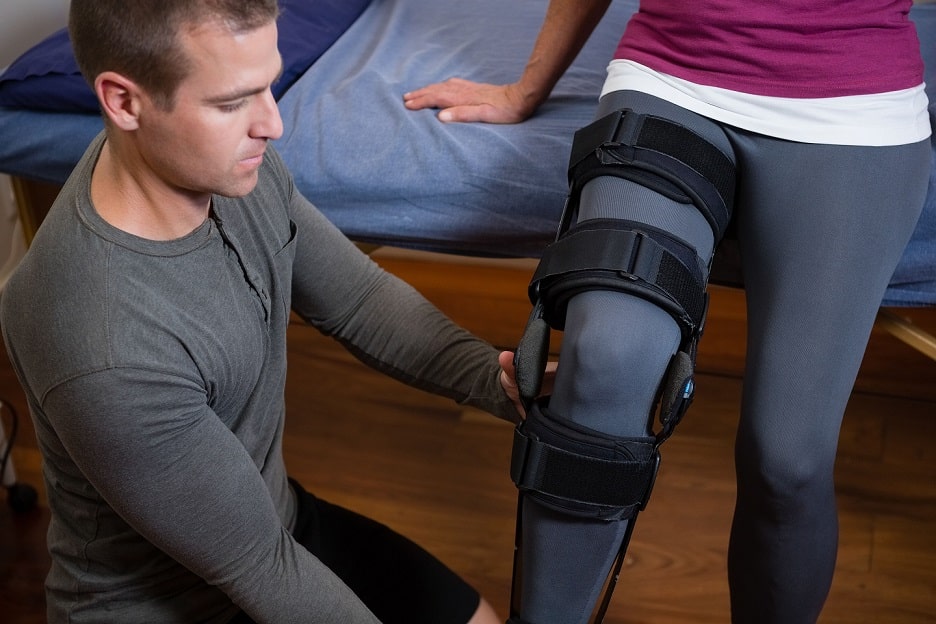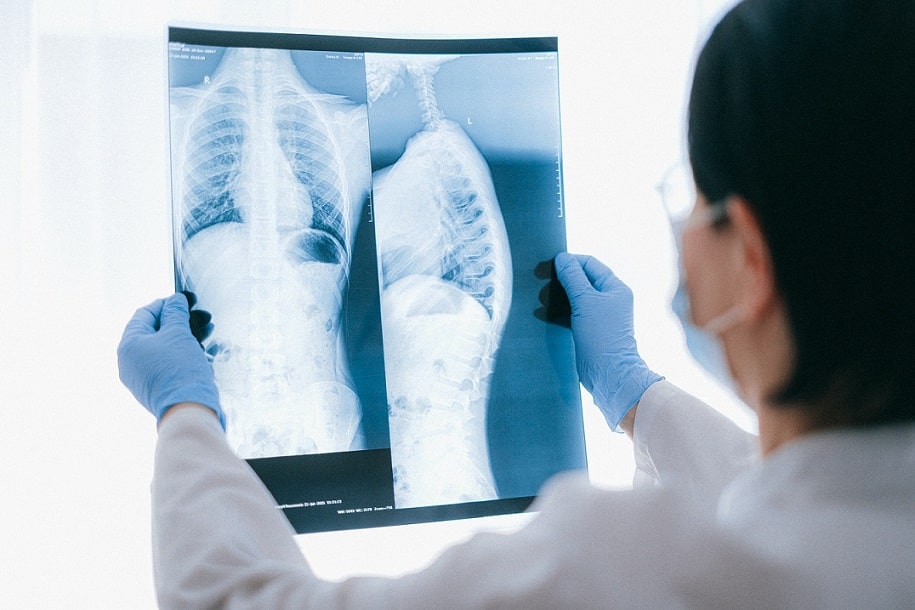 Knee injuries can be seriously debilitating – there is a lot to take in to account for valuing such a case. Our knees are ultimately responsible for holding us upright and walking or running around. With a weak or injured knee, you can end up facing unfortunate and often serious mobility issues.
Knee injuries can be seriously debilitating – there is a lot to take in to account for valuing such a case. Our knees are ultimately responsible for holding us upright and walking or running around. With a weak or injured knee, you can end up facing unfortunate and often serious mobility issues.
We as expert personal injury lawyers are used to dealing with all injuries and claims; we are more than used to representing people with knee injuries. The reason I’m writing on this subject in particular is because I am currently suffering from a debilitating knee injury myself; so I thought I’d share with you some of the trials and tribulations I have been through in a sense of how they fit in with a claim to give you an idea of what sorts of things you can include as part of your compensation claim.
The most common knee injuries involve your ligaments inside your knee. Impact injuries and / or dislocation injuries will commonly cause severe damage to the ligaments in your knee. To give you an example, i.e. me, from a simple impact injury and a knee dislocation, in which I heard the dreaded pop sound associated with these injuries, my anterior cruciate ligament (ACL) pulled the piece of my tibia that it is attached to clean off, and all collateral ligaments were torn. Another problematic side effect is the nerve damage that is often associated with these injuries. The common peroneal nerve (CPL) can become trapped by swelling, or can even tear of snap – resulting in a rare condition known as “foot drop” or “drop foot” where the foot literally cannot be raised as the ability to dorsi-flex is gone from the damage.
This sort of injury is devastating, and can leave you with lifelong effects. The aim of the claim for compensation (although sadly mine was sporting, and I cannot make one) is to make sure that you are recompensed for your pain, suffering, and losses associated with it.
Whether you have ended up with simple tears to any of the major ligaments, or whether you have needed them reconstructing, the advice below may be helpful for any of the following:
- Anterior Cruciate Ligament (ACL)
- Posterior Cruciate Ligament (PCL)
- Medical Collateral Ligament (MCL)
- Lateral Collateral Ligament (LCL)
To make it easier, I will continue to make references to my injury:
The Surgery
If you require surgery for the ligament damage, common in serious cases, you are entitled to claim for the pain and the inconvenience of the surgery itself; as well as the scarring that is commonly associated with knee surgeries. If your surgery involves ligament reconstruction, you may well end up with two sizable scars – one down the side of your knee that bends with the contour of your knee, and another down the front of the leg starting at the knee cap and moving down – both roughly 8 – 10 inches in length. These are from the open surgery that may require harvesting tendons from your patella at the front of the knee to reconstruct torn ligaments in the knee itself.
You may well be in hospital for around two to five days, so the inconvenience and loss of any earnings can certainly be included in the claim. Obviously the pain and the scarring are also included as well, as it’s likely you will be scarred for life.
The Recovery
It’s often a very long recovery period for knee injuries, especially following surgery. There may be two to three months of none weight bearing with the use of crutches, frames, and wheelchairs the only way to get around. You will need months of physiotherapy to recover from the injury as well; all of this adds up in inconvenience and expense.
You will likely need the help of a partner or a family member or friend on an almost continuous basis for meal preparation, shopping, dressing, and washing – pretty much everything. The difficulties in only having one leg restricts you at almost everything you do; especially because you may well be in a full knee brace that restricts the bending of your knee for up to eight weeks.
The appointments at hospitals and with physiotherapists will also be numerous. You may have to rely on others to drive you to appointments, or you may have to rely upon taxis. On top of all this comes the unpleasantness associated with being in pain, being on constant medication, and being unable to have a social life at all. If you are off work long term, your financial suffering could run in to thousands of pounds.
You may well be left with a permanent weakness in the knee, unable to enjoy sporting activities in the way you did before, or may well be left with permanent mobility issues.
In one word – it’s an absolute NIGHTMARE!
What You Can Do
Well, here is where we step in to give you the peace of mind you deserve. If the injury was caused through no fault of your own, you may well be entitled to make a claim for compensation. The claim is broken down in to two parts – one for your injuries, and one for your losses:
Injury – General Damages
You are entitled to claim compensation for the pain, suffering, and loss of amenity associated with the injury. A lot of this I have mentioned above; the pain in general for the injury, the pain and inconvenience of the surgery, the scarring, the reduced quality of life as a result of immobility, the loss of enjoyment of anything you were unable to do. With a serious injury claim, this can rack up in to tens or hundreds of thousands of pounds; and even millions of pounds if you are left with permanent disabilities.
No detail is left out – so keep a diary of how the injury has affected you both physically and psychologically so our medical experts can make a fantastic report that we can use to maximise your payout.
Losses – Special Damages
You are entitled to claim for the personal expenses incurred and losses incurred as a result of the injury. Lost earnings from any time off work is the most common, but you can also claim for the travel costs to and from hospitals and appointments, your medication costs, equipment costs if you need to buy anything – and the care and assistance costs which can be paid to whoever has had to help you out whilst you have been unable to fully look after yourself.
Treatment and Rehabilitation
You will probably need rehabilitation for the injury – perhaps physiotherapy. Whilst you can get some good treatment on the NHS, you are entitled to have it privately for personal injury cases. The costs of the treatment are all recovered from the other side as well – you deserve the best since you were injured through someone else’s negligence.
Making a Claim for Compensation
With a serious knee injury, you need a fully qualified personal injury expert lawyer to represent you for your claim. Do not just instruct the first lawyer that you come across – do your homework, find out about their No Win, No Fee agreement, and find out about the service levels they are willing to offer for you. You should be entitled to:
- 100% compensation if you win, with legal fees recovered from the other side
- Nothing to pay for if you lose
- Private medical care with funding arrangements
- Regular contact – around every 14 days or so
- A specialist personal injury lawyer dealing with your case
You need to make sure you are in the best of hands for your claim. If you are suffering with a serious knee injury like mine, don’t suffer in silence – call us now, and feel free to ask for me directly, on 0800 634 75 75.

 Knee injuries can be seriously debilitating – there is a lot to take in to account for valuing such a case. Our knees are ultimately responsible for holding us upright and walking or running around. With a weak or injured knee, you can end up facing unfortunate and often serious mobility issues.
Knee injuries can be seriously debilitating – there is a lot to take in to account for valuing such a case. Our knees are ultimately responsible for holding us upright and walking or running around. With a weak or injured knee, you can end up facing unfortunate and often serious mobility issues.









